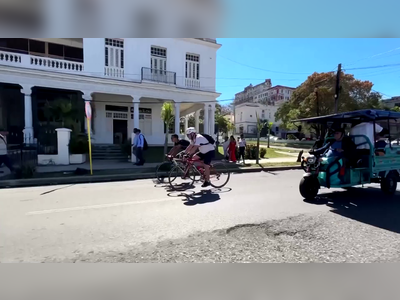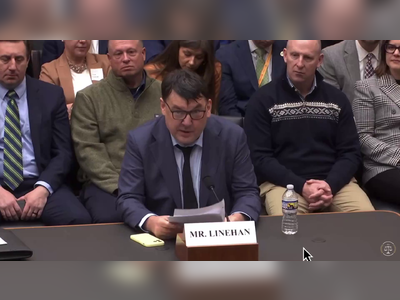
Study Finds Profit Margin Regulations on Drugs in Costa Rica Unjustified
Coprocom Report Reveals Lack of Evidence for Price Controls on Pharmaceuticals
A recent study conducted by the Commission to Promote Competition (Coprocom) has concluded that the regulation of profit margins on medication sales in Costa Rica lacks justification, as there is no evidence of overpricing that would support such measures.
The 'Pharmaceutical Sector Market Study' was funded by the Inter-American Development Bank (IDB) and is set to be unveiled on Wednesday.
The study did not identify any overpricing generated by abuse of market power or anticompetitive practices, according to a summary released by the Commission.
This comes in the wake of a decree signed on January 15 by President Rodrigo Chaves, which aims to regulate profit margins for drug distribution to influence consumer prices.
Under this decree, wholesale distributors are assigned margins ranging from 11% to 28%, while retailers such as supermarkets and pharmacies are allowed margins from 25% to 43.5%.
At the time of the decree's announcement, Francisco Gamboa, the Minister of Economy, Industry, and Commerce, asserted that the margins were set after analyzing drug prices in nearly 50 countries, including Australia, the United States, Germany, Spain, and Finland.
The policy applies to all medications registered with Costa Rica's Ministry of Health.
Minister Gamboa noted that a study by his ministry found wholesalers add an average margin of 85% on drug prices in Costa Rica, compared to a 17% average in the 50 countries analyzed.
The decree will come into effect a month after its publication and will be initially valid for six months, with periodic reviews planned to assess its effectiveness, as confirmed by the Ministry of Economy.
La Nación has sought comments from Minister Gamboa regarding the Coprocom study findings, with responses pending as of the article's closing.
The study's summary highlights that price regulations should be temporary and exceptional, warning that fixed margins might lead to compensatory price adjustments in other products or services, potentially increasing final prices for consumers.
The study noted that such market regulation could discourage investment and lead to market distortions.
Coprocom previously criticized the decree prior to its signing, cautioning that setting maximum price caps for medicines without a proper market impact assessment could result in shortages, reduced quality, and limited availability of innovative products for consumers.
In a related study published in August, Coprocom examined the sugar cane market in Costa Rica and reported it operates as a cartel, setting non-competitive prices for consumers, according to existing regulations.
The pharmaceutical analysis further suggests high medication costs in Costa Rica are attributed to structural and regulatory factors, including the country's status as a net importer of medications.
The report also points to slow health registration processes, regulatory misalignments with international standards, and consumer distrust in unbranded generics as obstacles that reduce competition and raise drug prices.
The research, led by Alexander Elbittar and Carlos Lever—consultants with the IDB and academic researchers—outlines the Costa Rican pharmaceutical sector's main components: primarily international pharmaceutical laboratories focusing on drug production, domestic generics specialists, intermediary drug stores responsible for widespread distribution, and pharmacies, which serve as retailers in both chain and independent formats.
To enhance competition, the study offers several strategies, such as expediting the health registration process and aligning regulations with Central American and Caribbean standards to simplify new product entry.
Encouraging confidence in branded and unbranded generics is also advised to facilitate market diversity.
The study proposes educational campaigns and regulatory initiatives to boost generic drugs’ acceptance among consumers and healthcare providers alike, signifying that addressing these barriers could result in a more competitive and accessible pharmaceutical market in Costa Rica.
The 'Pharmaceutical Sector Market Study' was funded by the Inter-American Development Bank (IDB) and is set to be unveiled on Wednesday.
The study did not identify any overpricing generated by abuse of market power or anticompetitive practices, according to a summary released by the Commission.
This comes in the wake of a decree signed on January 15 by President Rodrigo Chaves, which aims to regulate profit margins for drug distribution to influence consumer prices.
Under this decree, wholesale distributors are assigned margins ranging from 11% to 28%, while retailers such as supermarkets and pharmacies are allowed margins from 25% to 43.5%.
At the time of the decree's announcement, Francisco Gamboa, the Minister of Economy, Industry, and Commerce, asserted that the margins were set after analyzing drug prices in nearly 50 countries, including Australia, the United States, Germany, Spain, and Finland.
The policy applies to all medications registered with Costa Rica's Ministry of Health.
Minister Gamboa noted that a study by his ministry found wholesalers add an average margin of 85% on drug prices in Costa Rica, compared to a 17% average in the 50 countries analyzed.
The decree will come into effect a month after its publication and will be initially valid for six months, with periodic reviews planned to assess its effectiveness, as confirmed by the Ministry of Economy.
La Nación has sought comments from Minister Gamboa regarding the Coprocom study findings, with responses pending as of the article's closing.
The study's summary highlights that price regulations should be temporary and exceptional, warning that fixed margins might lead to compensatory price adjustments in other products or services, potentially increasing final prices for consumers.
The study noted that such market regulation could discourage investment and lead to market distortions.
Coprocom previously criticized the decree prior to its signing, cautioning that setting maximum price caps for medicines without a proper market impact assessment could result in shortages, reduced quality, and limited availability of innovative products for consumers.
In a related study published in August, Coprocom examined the sugar cane market in Costa Rica and reported it operates as a cartel, setting non-competitive prices for consumers, according to existing regulations.
The pharmaceutical analysis further suggests high medication costs in Costa Rica are attributed to structural and regulatory factors, including the country's status as a net importer of medications.
The report also points to slow health registration processes, regulatory misalignments with international standards, and consumer distrust in unbranded generics as obstacles that reduce competition and raise drug prices.
The research, led by Alexander Elbittar and Carlos Lever—consultants with the IDB and academic researchers—outlines the Costa Rican pharmaceutical sector's main components: primarily international pharmaceutical laboratories focusing on drug production, domestic generics specialists, intermediary drug stores responsible for widespread distribution, and pharmacies, which serve as retailers in both chain and independent formats.
To enhance competition, the study offers several strategies, such as expediting the health registration process and aligning regulations with Central American and Caribbean standards to simplify new product entry.
Encouraging confidence in branded and unbranded generics is also advised to facilitate market diversity.
The study proposes educational campaigns and regulatory initiatives to boost generic drugs’ acceptance among consumers and healthcare providers alike, signifying that addressing these barriers could result in a more competitive and accessible pharmaceutical market in Costa Rica.











